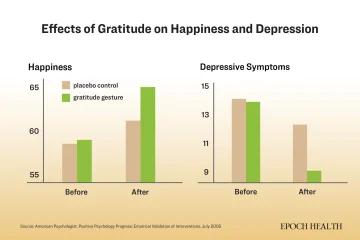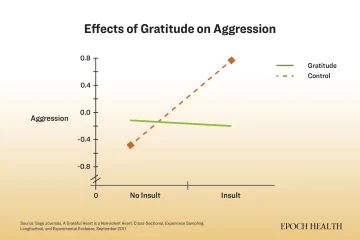 We all know that Thanksgiving is a time for being grateful. This year might be the most challenging as we find new COVID-friendly ways to celebrate the holidays, likely without your favorite traditions and favorite people.
We all know that Thanksgiving is a time for being grateful. This year might be the most challenging as we find new COVID-friendly ways to celebrate the holidays, likely without your favorite traditions and favorite people.
But with change comes an opportunity to focus on what we do have.
Practicing gratitude is simply taking time to reflect upon what you’re grateful for.
When we practice gratitude, the expectation is not to be grateful for everything. It doesn’t mean we love every minute of the day, and it certainly doesn’t mean we’re not annoyed with that pile of dirty dishes or email inbox that won’t quit. But it does mean we acknowledge gratitude for something.
Did that morning coffee taste extra tasty this morning? Share your gratitude.
Were you able to get your workout in? Share your gratitude.
Did your dog give you a warm greeting when you got home? Share your gratitude.
It’s easy to be grateful in the USA. Despite all our drama right now, we are still the most blessed people on earth. Those of us who have a phone, more than $100 in savings, a sturdy roof over our heads, clean running water, a toilet, and a refrigerator are wealthier than 95% of the world’s population!
Gratitude knows no limits. And it has excellent physical, social, and psychological benefits, too.
A natural antidepressant
Filtering your mindset to focus on positive acts that bring you joy acts as a natural antidepressant.
Neuroscientists discovered the link between positive thinking and activation of certain neurotransmitters – like dopamine and serotonin. These neurotransmitters earned the reputation of “happy chemicals.”
When we feel good, we’re able to do things to keep feeling good. People inherently want to feel better, but when we’re already so strained from stress or lack of sleep, we have difficulty making beneficial behavior changes.
These behavior changes, like meditation, deep breathing, and exercise, require us to feel well enough to make good choices purposefully. And generally, when we’re stressed and tired and depleted, we don’t have the energy for these actions.
Gratitude activates regions of the brain associated with emotional regulation and pleasure, like the caudate and frontal gyrus. When we practice gratitude, brain regions responsible for positive emotions are stimulated, while regions responsible for negative emotions are inhibited.
When we feel grateful, our brains release dopamine and serotonin—two neurotransmitter hormones responsible for how we feel. Dopamine gives us that ‘feel-good’ rush when we accomplish something, while serotonin boosts our mood over a more extended period, helping to stabilize it.

Drink from the fountain of youth and health
Gratitude actually changes your brain’s neural pathways, combats chronic stress, and strengthens our immune system — generally boosting our well-being.
Research shows that our parasympathetic nervous system, or “rest-and-digest,” is triggered when we think about what we appreciate, versus focusing on the negative thought loop. Rest-and-digest is the part of the autonomic nervous system that we want activated to maintain a healthy immune system to help alleviate illness, chronic pain, and improve quality of sleep.
“In studies, after eight weeks of practice, brain scans of individuals who practice gratitude have stronger brain structure for social cognition and empathy, as well as the part of the brain that processes reward,” said Dr. Emiliana Simon-Thomas, the science director of the Greater Good Science Center.
Practice makes perfect habits
Habits form from repetition. The more we practice anything, the better we get at it, which can help us form neural pathways for positive or negative habits.
Practicing gratitude when things we enjoy happen and intentionally taking time each day to pay attention to what is positive actually reinforces our neural pathways to remember experiencing positive feelings and helps prevent stress from getting to us.
Think of gratitude practice as brain training – by giving thanks for what we have, we can retrain our brains to be stronger and more resilient to stress. On the flip side, if we practice momentarily distracting ourselves from how we’re feeling when we’re stressed, by reaching for the ice cream or taking another scroll through social media, we train ourselves to rely on a habit that might distract us for a moment, but often makes us feel worse.
Gratitude isn’t just a habit—it’s about changing our mindset. In cultivating virtues, like gratitude, our minds become healthy, and the body follows. Gratitude leads to a natural, self-sustaining loop of positive reinforcement. The more we practice gratitude, the better we feel—instantly and in the long term. Our brains begin to enjoy the release of feel-good hormones, encouraging us to continue feeling grateful. Over time, this practice can become part of our lives.
Overcome future challenges
Gratitude today makes for a better tomorrow. Once we become practiced in reframing situations through gratitude, we get out of the scarcity mindset and can be more present.
Research shows that if we’re grateful, we can’t resent someone for having something that we don’t, meaning we’re taking control of negative feelings like envy, regret, and resentment. Resentment is tied closely to the general dissatisfaction with life.
Better sleep and less stress
Many symptoms, diseases, and disorders plague our modern society. At the forefront is a lack of sleep quantity and quality. Gratitude can alleviate these side effects by improving sleep. Research has found that participants—even those with sleeping disorders—who reflected on what they were thankful for before bed experienced significantly better sleep quality and duration.
Gratitude can significantly lower stress levels. This, in turn, benefits mental and physical health, including strengthening the immune system. By encouraging behaviors that support immune function, gratitude lowers levels of interleukin-6, a leading culprit in chronic inflammation.
Thicker skin
It seems these days most people are too easily offended or are even looking for a reason to feel offended, which is very unhealthy to carry those negative emotions. It’s also unhealthy to express anger to frequently, which also seems to be a recent trending issue. A study published in Social Psychological and Personality Science in 2012 found that individuals who practiced gratitude experienced lower levels of aggression, even after being insulted. In contrast, those in the control group—who did not practice gratitude—experienced increased aggression after being insulted.

How do I practice gratitude?
We can practice gratitude prayer, meditation, journaling, and certain tasks. Here are some ways to get started practicing gratitude:
- Write a thank-you note or letter. A study published in 2005 showed that writing thank-you letters increased participants’ happiness by 10 percent and reduced their depressive symptoms by 35 percent. These feelings were sustained up to six months after writing the letter, highlighting the powerful effect of this gesture.
- Keep a gratitude journal. Those who practice gratitude journaling experience less pain, with a nearly 8 percent decrease, and are more inclined to exercise.
- During transitions in the day, take a minute to think about what went well. This is a great exercise during work breaks.
- Look in the mirror or move your body and think about something you like about yourself.
- Take a moment to notice the beauty of your surroundings – trees changing color, a moody sky, a particularly cozy nook in your house that gives you comfort.
- Text or call a loved one to tell them something you appreciate about them (this is the most powerful one).
For the fastest results and brain changes, gratitude should be practiced first thing every morning and the last thing to think about every night before going to bed, so try writing these down in a notebook or on a piece of paper in the morning and at night to keep them as fresh in my mind as possible.









